Spring 2026 EN Course Descriptions
English majors and minors are encouraged to complete the advising template (PDF) before meeting with their academic advisors. Those who choose to register online might consider filling out the document in Word, saving it to a file, and then e-mailing it to their advisors as part of the "permit to register" request.
English Department Course Offerings - Spring 2026
200-Level Courses
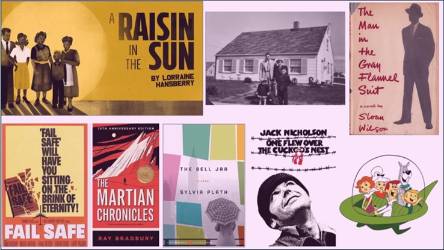
Special Topics: Cold War Literature
EN 200.01 – T/TH 10:50 AM-12:05 PM
EN 200.02 – T/TH 1:40-2:55 PM
Dr. Melissa Girard
In this course, we will study iconic works of literature and film from the Cold War era, specifically, the 1950s and 60s, to understand how political developments gave rise to new forms and styles of writing. Readings include Sloan Wilson’s The Man in the Gray Flannel Suit (1955), Lorraine Hansberry’s A Raisin in the Sun (1959), Sylvia Plath’s The Bell Jar (1963), the film One Flew Over the Cuckoo’s Nest (1975), selected poems by Allen Ginsberg, Robert Lowell, and Anne Sexton, and science fiction by Ray Bradbury and Ursula K. Le Guin. These works of literature and others in between will help us understand how American society changed in this period and to consider whether our lives are similar or different today. What can literature teach us about the hopes and fears of this earlier generation of Americans?

Majors Writers: Monsters and the Monstrous
EN 201.01 - T/TH 4:30-5:45 PM
Dr. Gayla McGlamery
The flowering of science and technology in the late eighteenth and nineteenth centuries markedly improved people's lives, but progress (as always) brought with it unintended consequences. The fears that scientific theorizing and experimentation unleashed reveal themselves in the "monster" literature of the period, most notably in works of Mary Shelley, the Brownings, Christina Rossetti, Bram Stoker, and H.G. Wells. This literature aims to evoke horror but also to raise philosophical and moral questions. In "Monsters and the Monstrous, we'll examine the intersections of science, technology, and the monstrous in literature of the 19th and early 20th centuries and analyze shifting conceptions of the natural and the unnatural that still influence us today. In addition to the literary texts, we will also view and discuss four films.
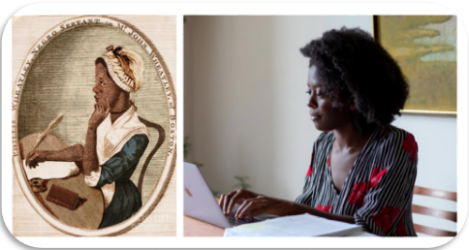
Black Women Writers
EN 208.01 - T/TH 12:15-1:30 PM
Dr. Sondra Guttman
Did you know that the second woman in America to publish a book of poems was enslaved —and she did it as a teenager? Get to know Phillis Wheatley and other literary superstars whose courageous voices inspired social justice movements and empowered people globally to envision and work towards a better world. The innovative works we’ll read challenge the boundaries between fiction and non-fiction, poetry and prose, and autobiography and history. Topics include gender and sexuality studies, racial construction and identity, the transatlantic slave trade, diaspora, The Harlem Renaissance, and the Black Arts Movement. Writers include Zora Neale Hurston, Alice Walker, Toni Morrison, and Yaa Gyasi.
The emphasis is on shorter readings (stories, poems, essays, and selections from longer works) with a novel at semester’s end. The work includes weekly posts, a midterm and a final exam, two short essays, and a collaborative teaching project.
This course fulfills your second-level English or History core requirement and is Diversity- Justice designated. The course also counts towards minors in African and African American Studies (AAAS), Peace and Justice, and Gender and Sexuality Studies.
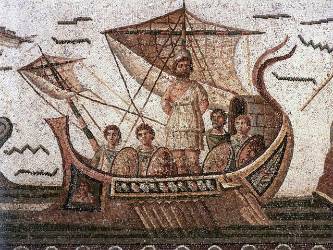
Major Writers: Ancient Novel
EN 214.01 - M/W/F 10:00-10:50 AM
Dr. Thomas McCreight
Ancient Greek and Roman novels cover a wide range. Some (those written in Greek) are similar to the films Princess Bride or Pirates of the Caribbean, filled exotic locations, travel and adventure, divinely beautiful protagonists, mistaken identity, separated lovers and, ultimately, happy endings. Others (written in Latin) are earthier and more comic, with characters from the working classes, the enslaved, and those living on the margins of society: witches and sorcerers, con artists and thieves. We will look at the historical and cultural background of these works, their possible audience(s), and ways to interpret their variety and complexity.
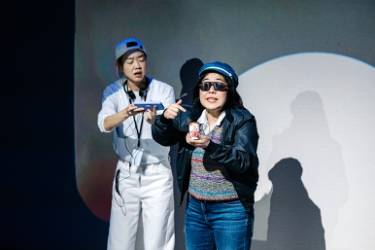
Literature Onstage, Yesterday & Today
EN 215.02 - M/W/F 12:00-12:50 PM
Dr. Hunter Plummer
The theater can be incredibly communal and even vulnerable for the performer and the audience as they occupy a shared physical space and grapple with ways to (literally) stage a protest or commentary on the writer’s society and culture.
In this course, you will dive into the abrasive, provocative, and experimental world of modern and contemporary theater. You will study plays and musicals as works of literature—not just things to produce onstage—to develop and hone the skills needed to analyze scripts and performances in the same way you would prose and poetry, while also have the opportunity to attend a local professional production.
While this course will be dominated by American theater, it will also draw upon the rich traditions of the United Kingdom, Argentina, Nigeria, and beyond—including works in translation—to expose you to a global vision of the last 100 years of drama and its major artistic and literary movements, showing how theater reflects the developments and problems of communities around the world.
Possible plays and musicals studied include Fefu and Her Friends (María Irene Fornés), Machinal (Sophie Treadwell), Mother Courage (Bertolt Brecht), Death and the Maiden (Ariel Dorfman), The Camp (Griselda Gambaro), Death and the King’s Horseman (Wole Soyinka), Assassins (Sondheim/Weidman), The Nosebleed (Aya Ogawa), and Heroes of the Fourth Turning (Will Arbery).

Comic Books as Literature, TV, & Cinema
EN 220.01 - M/W/F 10:00-10:50 AM
Dr. Brett Butler
The impact of comic books, graphic novels, and manga have had on popular cultural is massive. However, it is only in the last couple decades that these mediums have become the topic of proper scholarly debate and criticism. This course exposes students to a variety of comic book and graphic novels and teaches them how discuss them in academically. Whether they are dedicated comic book fans or mildly interested newcomers, students learn to develop a more profound appreciation for visual storytelling.

Literatures of Asia
EN 261.01 - M/W 3:00-4:15 PM
Dr. Sondra Guttman, Dr. Yu Stearns
Dr. Sondra Guttman (English) and Dr. Yu Zhang Stearns (Modern Languages) invite you to explore connections between the literatures of East Asia and Asian America. Focusing on the 20th and 21st centuries, this exciting new interdisciplinary course pairs Asian literary texts (in English translation) with historically and thematically corresponding Asian American texts. Learn how writers of different backgrounds reflect their traditions, communities, and experiences through genre, style, and language. We’ll discuss family, love, trauma, war, immigration, migration, discrimination, gender, nation, and race.
Whether you are approaching this literature from inside or outside of the AAPI community, studying these national and international texts and contexts will raise important foundational questions: What is Asia? Who is American? Who decides what literature is?
This course also features experiential learning opportunities, such as VR experience, a restaurant outing, a Lunar New Year celebration, and involvement in AAPI History month on campus.
Course requirements include short essays, a collaborative teaching project, a midterm test, and a final project with a creative element. This DJ course fulfills the following requirements: 200-level English core, Comparative Cultures & Literary Studies (CCLS) major and minor, Asian Studies minor, Chinese minor, American Studies minor.
The prerequisite is English 101. All texts are taught in English. No Asian language background is necessary.

Growing Up Modern
EN 280.01 - T/TH 9:25-10:40 AM
EN 280.02 - T/TH 3:05-4:20 PM
Dr. Mark Osteen
Childhood and adolescence are modern inventions. Building on that premise, this course explores how the literature of the past two-plus centuries has depicted childhood, adolescence and early adulthood. Among the questions we ask in the course are these: what trials and triumphs do children and adolescents endure on their way to adulthood? How do children, teens, and young adults respond to authority? How do unusual people (such as disabled youths) challenge norms and beliefs? Is coming of age the same across different cultures and ethnicities? How have representations and beliefs about childhood, adolescence and maturation changed over the decades? Readings will include Mary Shelley’s Frankenstein, Henry James’s Washington Square, short stories by James Joyce and others, and a selection of recent novels that may include Mark Haddon’s The Curious Incident of the Dog in the Night-Time, Margaret Atwood’s Oryx and Crake, Susan Nussbaum’s Good Kings Bad Kings, and Colson Whitehead’s The Nickel Boys. Each student will complete a research project and deliver an oral presentation. Students will also write two brief papers in which they reflect on their own identities and disabilities. Let’s grow up together!
300-Level Courses

Shakespeare: Comedies & Romances
EN 311.01 – M/W 3:00-4:15 PM
Dr. Thomas Scheye
What else is there to say about Shakespeare? Perhaps his contemporary and rival, Ben Johnson, said it best: “He was not of an age, but for all time!” And after 400 years, Shakespeare remains our contemporary, both timeless and timely. This course will trace the development of his genius from the early sonnets through the mature comedies:
In springtime, the only pretty ringtime,
When birds do sing, hey ding a ding, ding
Sweet lovers love the spring
The subject is love, every kind you can think of!
Shakespeare I is NOT a pre‐requisite.

Topics in American Literature: Hidden Queerness
EN 367.01 - M/W/F 11:00-11:50 AM
Dr. Brett Butler
This course focuses on mid 20th C. American literature (and some theater) through an LGBT+/ queer lens, analyzing texts and characters that have traditionally been viewed as heterosexual or manipulated by heteronormative audiences to ignore "queer signaling" in text and/or dialogue. In addition to reviewing literature, students will be familiarized with various LGBT+ / queer critics and their theories, noting how these theories have evolved and expanded to represent diverse groups of people and better understandings of gender and sexuality.
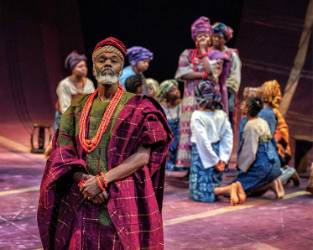
Modern Drama
EN 374.01 - M/W 4:30-5:45 PM
Dr. Hunter Plummer
The last 100 years of theater have brought about a great many innovations to genre, storytelling, and form. And each of these has been used to grapple with serious issues of the day. In other words, this course will highlight such changes through a lens of political theater.
For our class, “political theater” means writers directly tackling the politics of their day onstage. The end of colonial rule or a military dictatorship; the start of a fascist government or a war; and the ongoing perils of apartheid, genocide, and governmental inaction will be among the topics addressed by the works we read during the semester. We will explore the politics of countries and contexts from around the world—the United States, Germany, Chile, Nigeria, and more—and see how playwrights literally translate it to or symbolize it on the stage. Some do so as an act of protest, others in an attempt to understand the world around them. But all use the dramatic form to ask questions of their audiences and those in power and to offer answers that are often unsurprisingly but nevertheless scarily relevant to modern-day politics.
Possible readings include Heroes of the Fourth Turning (Will Arbery), Mother Courage (Bertolt Brecht), “Seven Jewish Children” (Caryl Churchill), Death and the Maiden (Ariel Dorfman), “Sizwe Bansi Is Dead” (Fugard/Kani/Ntshona), The Camp (Griselda Gambaro), Angels in America (Tony Kushner), and A Dance of the Forests (Wole Soyinka).
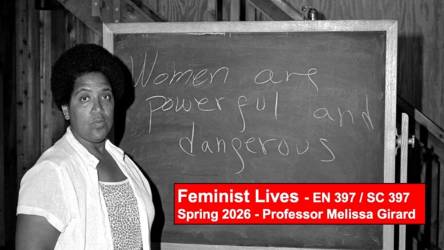
Seminar in American Literature: Feminist Lives
EN 397.01 - T/TH 3:05-4:20 PM
Dr. Melissa Girard
This course examines how women and LGBTQ+ individuals have imagined new ways of living and invented new forms of expression outside the mainstream. We will begin with Virginia Woolf’s pioneering work, Orlando (1928), a novel that challenges conventional ideas of both gender and genre. We will then explore other innovative examples of biographical and autobiographical writing, including Gwendolyn Brooks’ Maud Martha (1953), Sylvia Plath’s The Bell Jar (1963), poetry and essays by Audre Lorde, Adrienne Rich, and Claudia Rankine, and Alison Bechdel’s Fun Home (2006). At the end of the semester, students will have the opportunity to author their own biographical or autobiographical essay, as a way of exploring what it means to live a feminist life. In the spring of 2026, this course will also serve as the Gender and Sexuality Studies capstone.
400-Level Courses
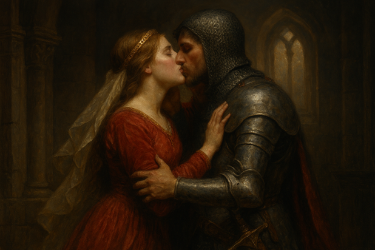
Seminar in Medieval Literature
EN 407.01 - T/TH 1:40-2:55 PM
Dr. Kathleen Forni
In this course we will explore the different manifestations of love found in various popular medieval genres (courtly manual, romance, epistolary exchange, fairy tale, autobiography). After our encounter with Plato’s theory of the ladder of love and Ovid’s timeless advice for seducing women on the cheap, we will examine the medieval courtesy books governing courtly love and then move on to how the "rules" found in these texts are put to use in fictional romances. We will conclude this survey of passionate love with an examination of how those couples who make the leap to matrimony establish working relationships. In the last part of the course, we will look at how the erotic rhetoric of secular love is reflected in more spiritual manifestations of desire.
Texts: Plato’s Symposium; Ovid, The Art of Love and Cures for Love; Andreas Capellanus, The Art of Courtly Love (De Amore); Chretien de Troyes, Arthurian Romances (Lancelot); Beroul, Tristan and Iseult; Letters of Abelard and Heloise; Chaucer, The Wife of Bath’s Tale, Clerk’s Tale; Thomas Malory, Lancelot and Elaine; The Book of Marjory Kempe; and The Dialogue of Catherine of Siena.
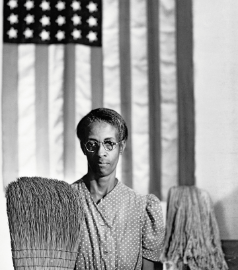
Seminar in African American Literature
EN 481.01 - M/W/F 2:00-2:50 PM
Dr. Trevon Pegram
What is the Great American Novel? Since 1868, when John William DeForest first used the term, readers and critics have been turning over this question in their minds. DeForest was questioning the American novel’s ability to portray “the American soul within the framework of a novel.” For him, there were various attempts, but none had quite succeeded in an accurate picture of the complexity of the country. As he described it, the Great American Novel would be “the picture of the ordinary emotions and manners of American existence.” Since DeForest’s initial proclamation and challenge, writers have been attempting to craft novels worthy of being labeled the Great American Novel. Yet, the term is an illusive attempt to frame an American experience that has never been universal. This point is highlighted when we consider the particularities of the Black American experience. How does the inclusion of Blackness alter our understanding of the Great American Novel? Can the Black American novel embody “the American soul”?
Our challenge in this course is to explore those questions, while also charting the growth and development of the Black American novel. Moving from the 1940 publication of Richard Wright’s Native Son to the 2001 publication of Percival Everett’s Erasure, we will read canonical works in the African American literary tradition that epitomize the Black American experience. Although we cannot read a novel from every decade, the course illuminates the work of the most venerated writers within this literary tradition. Some of our other novels include Ralph Ellison’s Invisible Man (1952), James Baldwin’s If Beale Street Could Talk (1974), Alice Walker’s The Color Purple (1982), and Toni Morrison’s Beloved (1987). Throughout the course, we will explore how Black novelists have refused, remixed, and altered the framework of the Great American Novel. In doing so, we will attempt to outline a set of parameters for defining the Great Black American Novel.
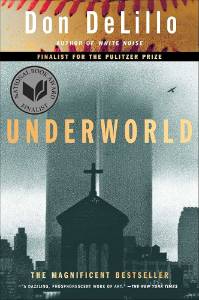
Seminar in Contemporary Literature: Apocalypse
EN 487.01 - M 6:30-9:00 PM
Dr. Mark Osteen
During the Cold War, authors imagined the end of the world occurring through a nuclear conflict. Contemporary novelists have found other ways of imagining apocalypse. In this course we will explore the apocalyptic visions of three distinguished authors in three works. That’s right: we will read only three works, but they are colossal!
We will begin with David Mitchell’s wondrous novel Cloud Atlas (2004), a brilliant meditation on the concept of eternal return, structured as six novellas embedded within each other like Russian dolls: an historical fiction based on the life of Herman Melville; the story of a young composer in the 1930s; a mystery about a reporter investigating a nuclear site in the 1970s; a darkly comic satire in which a publisher becomes trapped in a nursing home; a science fiction story about clone workers in a fast food restaurant of the future. At the center of this onion lies a post-apocalyptic coming-of-age tale set in Hawaii.
We then turn to American novelist Don DeLillo’s masterpiece Underworld (1997), a massive fictional history of the Cold War that begins with the famous Dodgers-Giants playoff game in 1951 and then moves backward from the 1990s, tracing the unholy marriage of nuclear weapons and waste. While tracing the famous home run ball through its owners, DeLillo provides a sweeping view of mid-century American life through a large cast that includes a young thug turned nuclear analyst, a female artist with whom he has an affair, as well as graffiti writers, nuns, nuclear technicians, the builder of Watts Towers, legendary comedian Lenny Bruce—and FBI director J. Edgar Hoover! Widely recognized as one of the landmark fictions of the past fifty years, Underworld both offers a vision of apocalypse and shows why we are so fascinated with it.
We will conclude with Margaret Atwood’s science fiction trilogy Maddaddam—which depicts the end of civilization following a pandemic. The first two novels, Oryx and Crake (2003), and The Year of the Flood (2009), trace the pre-apocalyptic lives of two sets of survivors—including the best friend of a scientist who creates a new race of humanoids and three women from an ecoreligious sect—who come together in the final volume, Maddaddam (2013). This fictional treatment of genetic engineering and the perils of scientific irresponsibility raises provocative questions about environmental and medical ethics.
Students will post weekly on Moodle, give an oral presentation, and write a seminar paper.
Take a journey from the recent past to the near future as we investigate how today’s finest novelists have imagined the end of the world.
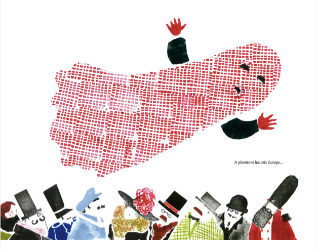
Seminar in American Literatures
EN 497.01 - T/TH 10:50 AM-12:05 PM
Dr. Gary Slack
You ain’t afraid of no ghosts? Well, you shouldn’t be! Ghosts may not be flesh and bone like the rest of us, but they’re important studies into memory. More specifically, ghosts show us how memories and remembrance can potentially outlive us all. Sure, there may be some frights along the way (Who doesn’t love a good scream?), but ghosts can teach us some valuable lessons. Whether it’s about the nature of revenge in Shakespeare’s Hamlet (c. 1599-1601), the horrors of enslavement in Toni Morrison’s Beloved (1987), or even the supposed afterlives of Marxism in Jacques Derrida’s Specters of Marx (1993), ghost stories show us how the past is always haunting the present. Whether we want it to or not is a different story altogether.
EN 099 English Internships
Students may take one internship course for degree credit. The course counts as an elective, not as a course fulfilling requirements for an English major or minor. Students taking an internship course are responsible for locating the internship and must work at least ten hours per week. For-credit internships include biweekly meetings with Dr. Cole and other fellow interns, and students undertake a series of reflective and goal-setting activities that can be highly beneficial aspects of the career discernment process. Internships may be done locally in the Baltimore-Washington region or remotely, but written or electronic permission of the instructor is required and all arrangements for a spring semester internship must be made prior to the end of the drop/add period. Interested students should contact Dr. Forni (kforni@loyola.edu) , the departmental internship supervisor, before registration.